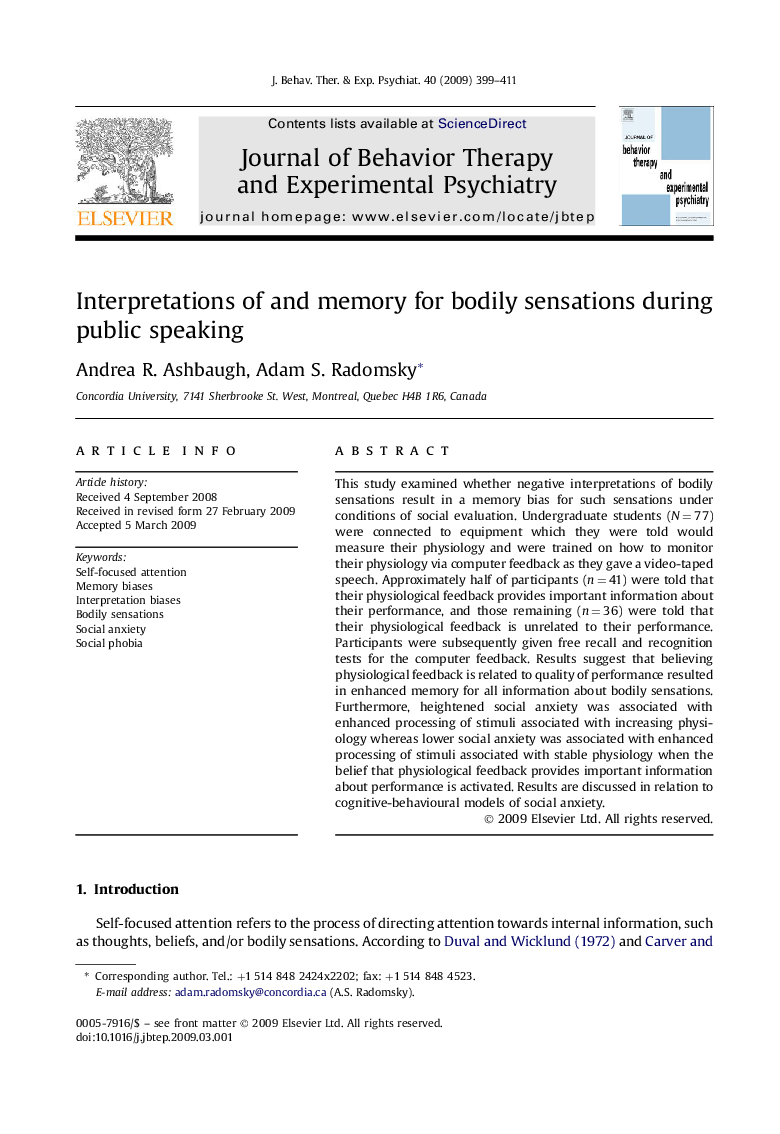| Article ID | Journal | Published Year | Pages | File Type |
|---|---|---|---|---|
| 910564 | Journal of Behavior Therapy and Experimental Psychiatry | 2009 | 13 Pages |
This study examined whether negative interpretations of bodily sensations result in a memory bias for such sensations under conditions of social evaluation. Undergraduate students (N = 77) were connected to equipment which they were told would measure their physiology and were trained on how to monitor their physiology via computer feedback as they gave a video-taped speech. Approximately half of participants (n = 41) were told that their physiological feedback provides important information about their performance, and those remaining (n = 36) were told that their physiological feedback is unrelated to their performance. Participants were subsequently given free recall and recognition tests for the computer feedback. Results suggest that believing physiological feedback is related to quality of performance resulted in enhanced memory for all information about bodily sensations. Furthermore, heightened social anxiety was associated with enhanced processing of stimuli associated with increasing physiology whereas lower social anxiety was associated with enhanced processing of stimuli associated with stable physiology when the belief that physiological feedback provides important information about performance is activated. Results are discussed in relation to cognitive-behavioural models of social anxiety.
